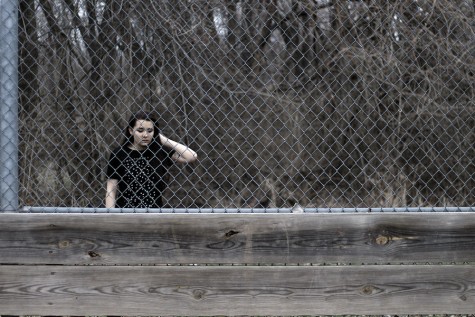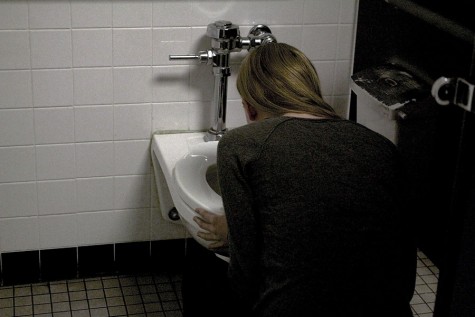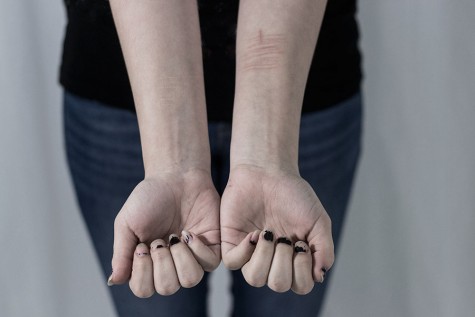Hidden behind the smile
While physical effects of bullying are more obvious, mental insecurities can plague a victim long after the scars are gone
The sobbing in the bathroom stall. The bruises that are always from a pet or a fall. The weird habits like not being able to eat in front of other people or sleep in unfamiliar places. We have categorized victims by physical traits, the ones we can see and can attach a blame to but often times we forget about what happens after the bruises have disappeared, we forgot about the memories that leave scars that do not fade.
The mental effects of bullying, while not as evident, are just as damaging if not more damaging to a person. Children and teens that have observed bullying tend to have more feelings of helplessness and loss of connection to to others. Victims of bullying are more insecure, depressed, anxious, lonely, and unhappy. This individuals begin to isolate themselves feeling like society as a whole has rejected them. This isolation puts them at a higher risk for suicide.
This is not to say that bullying is a direct cause of suicide or self-harm. This is an oversimplified statement for a complex problem. The majority of students who are bullied do not become suicidal and most teens that decide to take their lives do so for many reasons. Instead, it is said that bullying is a stressor that can cause suicide. Other stressors include mental health and school.
Shannon Harting, the educational support counselor, explained that there are two factors constantly at work in our lives: risk factors and protective factors. Risk factors could be bullying, alcoholism in the family, a death of someone close. Protective factors are family, friends, sports, enough food and clothing, a house. When a person’s risk factors outnumber their protective factors they are at risk for depression, anxiety, conflict, anger, and suicide.
“When your risk factors or when the negative things in your life way outweigh your protective factors, that’s what puts you more at risk for depression,anxiety, suicide, anger, conflict, all that kind of stuff,” Harting said. “There’s all these things that just exist in our world that are either risk or protective factors so bullying would be a risk factor, but it is probably not the only risk factor. It is one of the many things that would factor into thinking about suicide, attempting suicide and then eventually completing suicide.”
Suicide is not the only mental effects of bullying. As mentioned before, people involved in bullying become less connected to society as a whole and from there try to cope with problems alone, often unable to see easy solutions. These lead to negative mental health outcomes like anxiety, depression and thoughts of self-harm because often times, the victims begins to blame themselves for their situation. This prevents positive change and future suffering, putting victims in a derisive cycle that is hard to break.
Helping a person that suffers from depression because of bullying and medical depression is similar. According to Harting, the safest option is to turn to a trusted adult. The first step to changing is validation in one’s being. This means finding worth, worthiness as a friend, a student, and a person.
“Just like you would if you saw someone experiencing straight depression without bullying or anxiety without bullying, it is the same thing if you see them experiencing bullying and the symptoms are there, talk to an adult,” Harting said. “The person needs a lot of validation, like looking at what are the strengths in their life, what makes them feel good, what makes them feel connected.”
The easiest way to help a person suffering mentally is to not hide it. The breaking of that trust could save a life.
“Never keep a secret if someone is having stress that is leading them towards depression or anxiety, even if they say, ‘I need to tell you and I need you not to tell anyone.’ You need to say ‘I care too much about you to do that’ and get help.”
Your donation will support the student journalists of Francis Howell Central High School. Your contribution will allow us to purchase equipment and cover our annual website hosting costs. FHCToday.com and our subsequent publications are dedicated to the students by the students. We hope you consider donating to allow us to continue our mission of a connected and well-informed student body.







